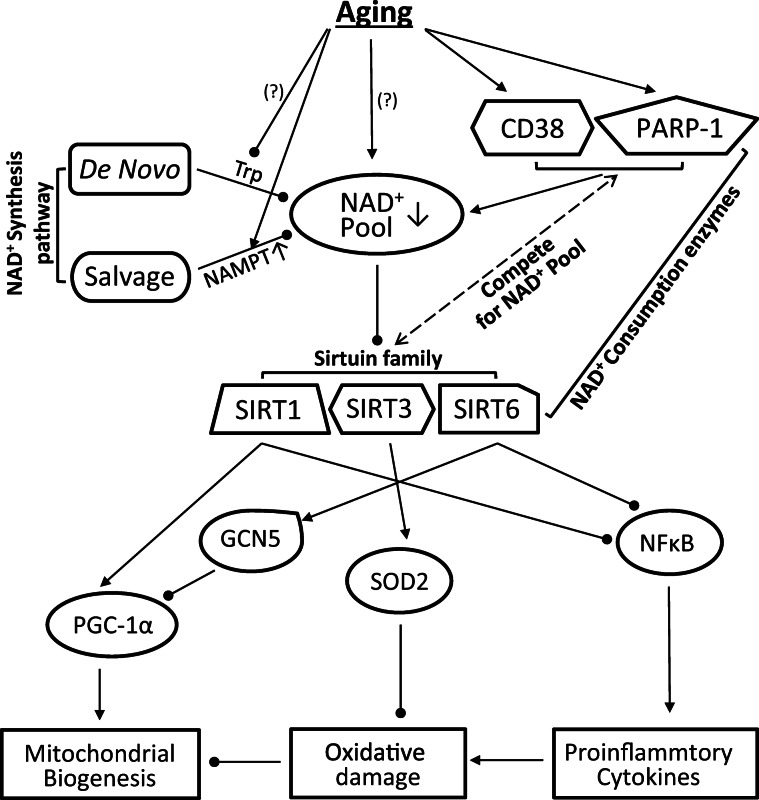Fig. 7.
Schematic overview of the aging impacts on various cellular pathways that control NAD+ homeostasis and protein acetylation status. Aging decreases NAD+ pool partly due to the upregulation of CD38 and PARP-1, which compete with SIRTs for NAD+ as substrate. Deficit of NAD+ pool reduces the deacetylation capacity of SIRTs, resulting in hyperacetylation of the enzymes and transcription factor/cofactor under its control. This enhanced acetylation of the key proteins may contribute to the age-related mitochondrial dysfunction and oxidative damage in muscle

